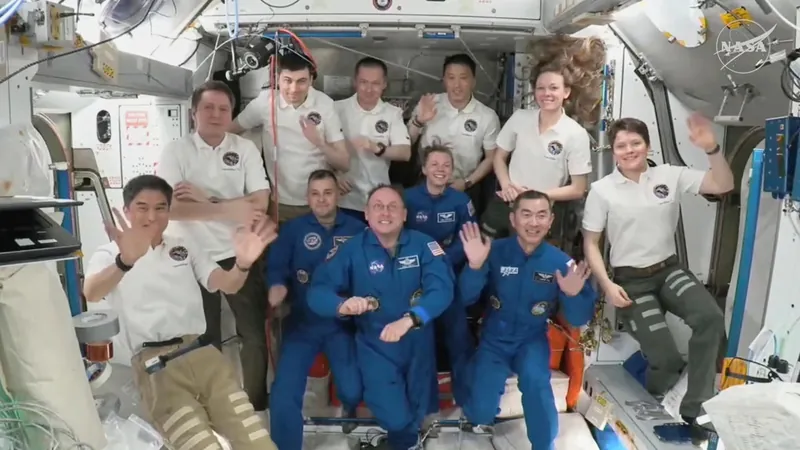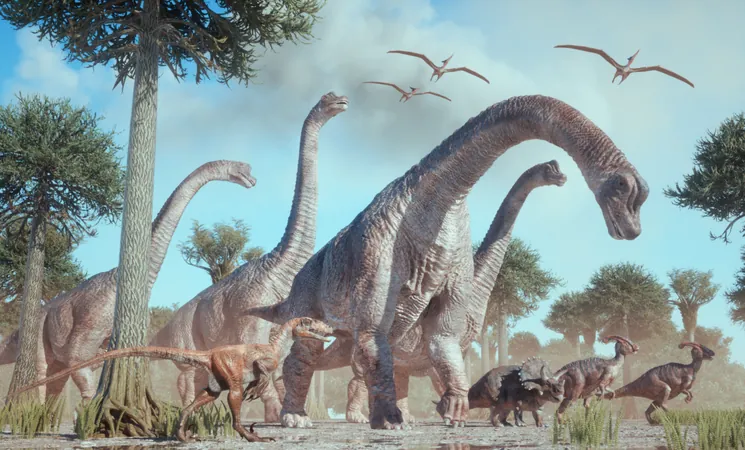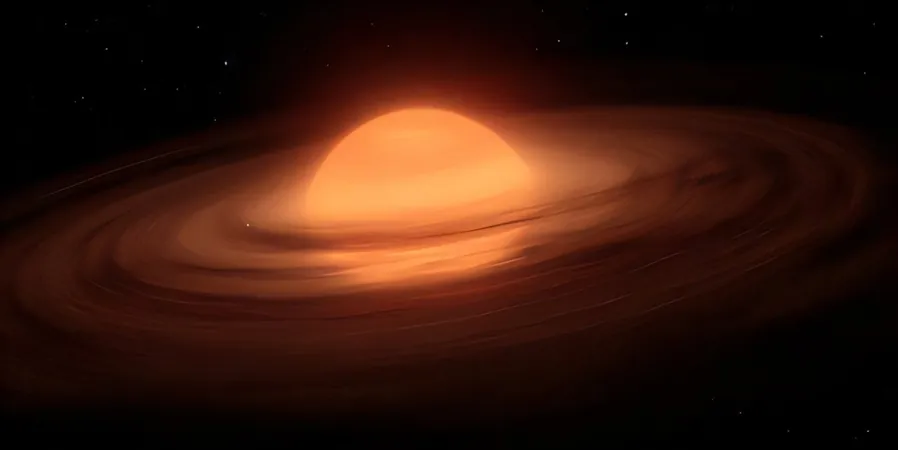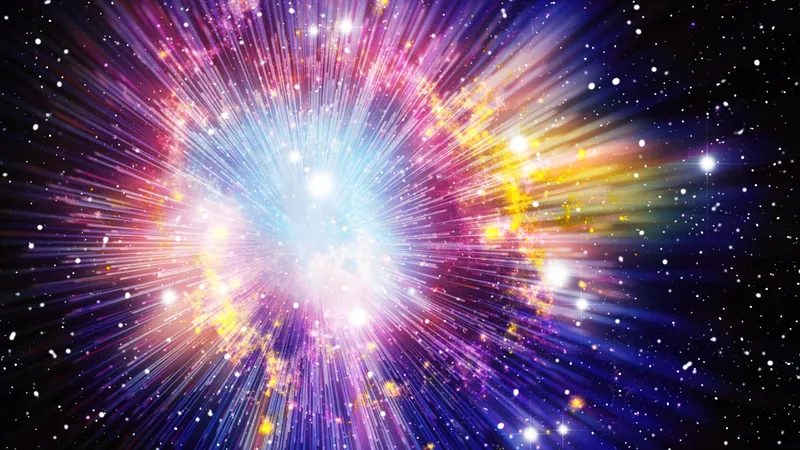
Remembering October 31, 2000: The Day Humanity Took Its First Steps Towards a Permanent Space Presence
2025-06-30
Author: Jacques
A Momentous Milestone for Humanity
On October 31, 2000, history shifted dramatically as the Soyuz TM-31 capsule blasted off from the Baikonur Cosmodrome in Kazakhstan. This pivotal mission, carrying three brave astronauts, marked the dawn of humanity’s continuous presence in space. The crew, composed of NASA astronaut Bill Shepherd and Russian cosmonauts Sergei Krikalev and Yuri Gidzenko, embarked on Expedition One, forever changing our relationship with the cosmos.
The Birth of the International Space Station
Upon docking with the International Space Station (ISS) on November 2, they made history as the first residents of this groundbreaking outpost. Initially a modest setup with only two modules—the Russian Zarya and American Unity—the ISS has evolved into an exceptional hub of scientific inquiry and collaboration.
A Hub for Scientific Innovation
Orbiting Earth every 90 minutes at breathtaking speeds of nearly 28,000 kilometers per hour, the ISS can accommodate up to seven astronauts at once. Since its inception, it has facilitated more than 3,000 scientific experiments conducted by astronauts from 108 nations, contributing to significant advancements in fields ranging from physics to biology.
Aging Infrastructure and the Future of the ISS
Despite its immense success, the ISS faces the inevitable challenges of aging. With over two decades of operation, the station is battling persistent air leaks and is in need of technological upgrades. Rising operational costs have pushed NASA and its international partners to contemplate the ISS’s retirement by 2030, with plans for a controlled deorbit using a SpaceX capsule to ensure safe disposal.
China's Ambitious Space Pursuits
As the ISS approaches the end of its era, China is charting its own course in the cosmos. Excluded from the ISS program, it launched the Tiangong space station, which has been continuously occupied since 2022. With plans to expand Tiangong from three to six modules, China is positioning itself as a formidable contender in space exploration, drawing international partnerships and training astronauts from countries like Pakistan.
Tackling the Growing Threat of Space Debris
In addition to these developments, a looming challenge threatens all space operations: the escalation of orbital debris. The ISS has had to carry out numerous evasive maneuvers to dodge hazardous space junk, which remains a pressing risk to astronauts and vehicles alike. As humanity embraces the stars, addressing the dangers of space pollution has never been more crucial.
A New Era of Space Exploration Awaits
As we reflect on that fateful day in 2000, it’s evident that humanity's quest for knowledge and exploration is far from over. With the ISS nearing its twilight and new players entering the arena, the future of space exploration promises to be more exciting—and competitive—than ever before.









 Brasil (PT)
Brasil (PT)
 Canada (EN)
Canada (EN)
 Chile (ES)
Chile (ES)
 Česko (CS)
Česko (CS)
 대한민국 (KO)
대한민국 (KO)
 España (ES)
España (ES)
 France (FR)
France (FR)
 Hong Kong (EN)
Hong Kong (EN)
 Italia (IT)
Italia (IT)
 日本 (JA)
日本 (JA)
 Magyarország (HU)
Magyarország (HU)
 Norge (NO)
Norge (NO)
 Polska (PL)
Polska (PL)
 Schweiz (DE)
Schweiz (DE)
 Singapore (EN)
Singapore (EN)
 Sverige (SV)
Sverige (SV)
 Suomi (FI)
Suomi (FI)
 Türkiye (TR)
Türkiye (TR)
 الإمارات العربية المتحدة (AR)
الإمارات العربية المتحدة (AR)